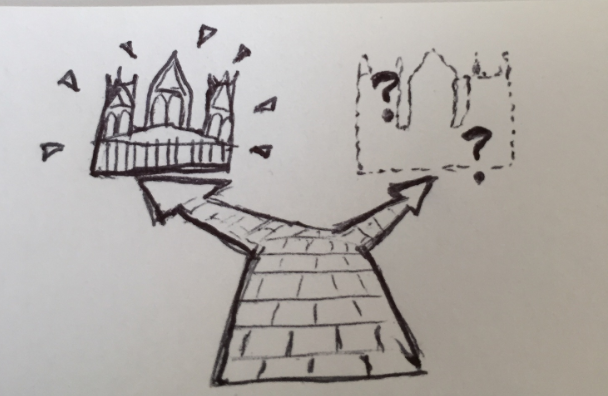Why is there such a mismatch between the sounds represented by the vowel letters in English versus virtually every other language that uses the Latin alphabet? For instance, “oo” makes the /uː/ sound that rightfully belongs to the letter U. “ee” and “ea” make the /i:/ sound that is normally written I, and “a” can either be the expected /ɑ/ or the unusual /eɪ/.
Contrast this with a language like Spanish, where the symbols A E I O U represent the sounds “ah” “eh” “ee” “oh” “oo,” with the letters and their values inherited from Latin. Other European languages have more complex vowel inventories, but at least the most fundamental values of the vowel letters — sometimes called the “continental” values — tend to be preserved.
Why don’t we spell “eye” ai, “food” fuud, or “treaty” triti? The explanation depends on something called the Great Vowel Shift. Continue reading The Great Vowel Shift, or why English vowel spellings confuse the world
